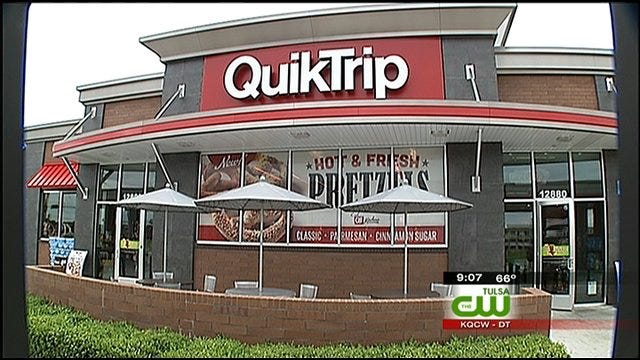Oklahoma Impact Team Investigates Gasoline Prices
What's driving wild swings in the price of gasoline?Monday, May 7th 2012, 9:04 am
We hear it every day: Why do gas prices go up and down so much, and who is responsible?
The average American family spent more than $4,000 dollars on gas last year, close to a tenth of their income. The Oklahoma Impact Team takes a closer look at what drives the price.
High gas prices are hitting people like Karen Davis hard.
"One tank is about $104," Davis said.
She and her family are changing their routines because of the price.
"We watch it really close," Davis said.
Gas retailers like Tulsa-based QuikTrip understand customers' concerns.
"Gasoline's probably the most emotional commodity that's sold in the U.S. and one of the biggest reasons is we have these signs that are out there where you see the price 24 hours a day," QuikTrip spokesman Mike Thronbrugh said.
That price is, basically, the sum of four components, and crude oil accounts for most of it. If crude is selling for $104 a barrel, as it was recently, that's $2.47 a gallon.
Now add the cost of refining the oil, about 40 cents per gallon; the cost of distributing and marketing the gas, about 32 cents per gallon.
Then top it off with state and federal taxes -- 35 cents a gallon in Oklahoma, for a total, on this day, of $3.54.
The costs of three of those four components don't change all that much. The one that does is crude.
"The most important determinant of the fluctuation in gasoline prices is the price of crude oil," said Chitru Fernando, of the University of Oklahoma School of Business.
Look at the price of crude oil over the last 30 years, now look at the price of gasoline. They mirror each other almost exactly. But also look at how much more the prices jump around today, versus 30 years ago.
"Years and years ago, if it moved a penny, two pennies a week, that was a dramatic change. OK, it's not uncommon today, on a daily basis, to see wild swings of 5, 10, 15 cents per day," Thornbrugh said.
Thornbrugh said a big reason for the increased volatility is the increased trading in gasoline futures.
"I don't think there's any question that that is part of it," he said.
Until about 10 years ago, non-commercial investment in gas futures hovered at less than ten-thousand contracts in any given week.. the number of those investors has since increased more than a thousand percent. These are hedge fund and investment fund managers...people with no interest in actually buying and taking delivery of gasoline -- they're just buying it on paper and then selling it off quickly, they hope, at a higher price.
"Oil is a commodity, it's bought and traded on the futures market just like gold or soybeans," Thornbrugh said.
AAA Oklahoma's Chuck Mai says, with so many pure profit-seekers in the mix, the oil market is jumpy and tends to overreact to domestic and global events, pushing prices up higher and faster than supply-and-demand alone would dictate.
"There's probably about a 20-, 25 percent premium to every gallon of gas that we buy. That is directly attributable to the speculation on Wall Street in oil futures," Mai said.
Alex Cameron: That's a lot, that's a lot on this tank of gas I just bought, that would be 20 to 25 bucks – purely the result of trading on Wall Street. Now, not everyone agrees with this, many say the true culprit in our volatile gas prices is global supply and demand.
More Like This
May 7th, 2012
April 15th, 2024
April 12th, 2024
March 14th, 2024
Top Headlines
April 25th, 2024
April 25th, 2024
April 25th, 2024
April 25th, 2024











